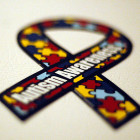The Office of the Child Advocate/Child Fatality Review is pleased to announce the following training: “Special Needs Victims and Witnesses: Best Practices in Investigations Involving Children with Autism and Other Communication Disabilities”
Friday, December 3rd, 2010
9:00 a.m. – 3:00 p.m.
Winfield Hall, 3890 Satellite Blvd, Duluth, GA 30096
Course Description:
Recent data suggests that 1 in 100 children and 1 in 70 boys are currently being diagnosed with some form of autism. Special needs children are at increased risk of abuse and there is growing concern that the child welfare and criminal justice systems are neither equipped nor trained to appropriately investigate such cases. This course addresses the specific communication issues typical in cases involving victims and witnesses with Autism Spectrum Disorders (ASD) and other disabilities affecting communication. Some of these typical core issues in cases involving special needs victims and witnesses include: overcoming communication issues, recognizing the significance of the disability to the case, and how best to utilize the resources available for assistance. Case studies will be utilized to discuss approaching investigations, interactions with families of special needs children, prevention strategies, child protection issues and charging decisions.
Our instructors:
Lori Brown: Lori is the Director of Forensic Services for the Oconee County Sheriff’s Office. Lori is a highly qualified forensic interviewer who has trained statewide and nationally on best practices in forensic interviews of children with disabilities. Rachelle Carnesale, JD: Currently the acting director of the Georgia Office of the Child Advocate, Rachelle is a former child abuse prosecutor who continues to regularly consult with and train child abuse professionals at the state and national levels. Dave Nelson, MS, LPC: A licensed counselor, Dave is the Director of The Community School in Decatur, Georgia. Dave specializes in working with children, adolescents, and their families with a focus on developing the interactive, emotional, and learning capabilities of children. Dave is a national expert on ASD and the issues surrounding that population.
Who should come? Anyone interested in the topic. While this training was prepared with district attorneys, public defenders, law enforcement, medical professionals, and school personnel, this topic certainly affects other professions and therefore, all are welcome. Come learn how to better investigate your cases involving this growing group of children. Bring your questions as the speakers anticipate an interactive session with the audience.
Please RSVP to Rachel Davidson via email: radavidson@oca.ga.gov and cc: rachelhdavidson@gmail.com or via phone: 404-656-4200 or 404-797-2608. CONTINUING EDUCATION CREDIT INFORMATION TO FOLLOW: CLE, POST & DFCS (SPONSORED BY THE PROSECUTING ATTORNEY’S COUNCIL OF GEORGIA), MILEAGE REIMBURSEMENT AND LODGING FOR TRAVELERS OVER 60 MILES.
AGENDA:
8:30 Registration
9:00 – 12:00 Dave Nelson, MS, LPC
Beyond Rainman:
Understanding Individuals with
Autism Spectrum Disorders in the
Context of Law Society, and Crime
What are the core challenges of Autism Spectrum
Disorders? • What do people with ASD “look like” and how do
they act?





